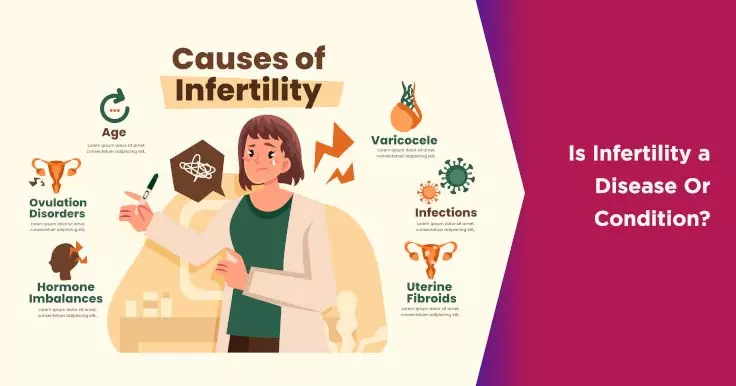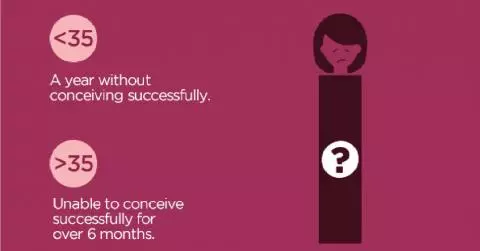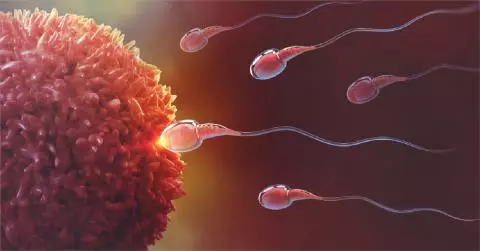Is Infertility a Disease or a Condition? Learn the Difference

Infertility can affect both men and women. When it comes to treating infertility, many people wonder whether infertility is a disease or condition. Some people consider infertility to be a disease while others think of it as a condition caused by poor lifestyle choices.
Why is it Difficult to Categorize Infertility?
A disease is defined as a disorder of function or structure. In such cases, it must produce specific symptoms, affect a specific part of the body and not be the result of a physical injury. On the other hand, a medical condition simply reflects a state of health.
Infertility is caused by many factors. Some of these factors can be controlled while others are outside our control. For example, the risk of infertility increases with age. Thus, a woman who is infertile in her 40s may not have been infertile in her 20s. Sexually transmitted diseases, smoking and being overweight also affect fertility. In such cases, it is difficult to categorize infertility as a disease.
On the other hand, some cases of infertility may be caused by structural issues. For example, a man could have difficulty fathering a child if he has no vas deferens or a woman could find it difficult to conceive if she has severe endometriosis. In such cases, infertility can be categorized as a disease.
The Good News
It may be a while before a distinction can be made between whether infertility is a disease or a medical condition but in the meantime, the good news is that it can be treated. Both male and female infertility can be successfully treated in a number of different ways.
This includes lifestyle changes, medication, surgery and cognitive therapy. In cases where there is no clear reason for infertility, IVF is often the best mode of fertility treatment and most couples have a baby within a maximum of 3 cycles of IVF.
 Infertility Counselling
Infertility Counselling Female Infertility Treatment
Female Infertility Treatment Andrology Treatment
Andrology Treatment Fertility Enhancing Surgeries - Female
Fertility Enhancing Surgeries - Female Fertility Enhancing Surgeries - Male
Fertility Enhancing Surgeries - Male Endoscopy Treatment
Endoscopy Treatment IUI Treatment
IUI Treatment IVF Treatment
IVF Treatment ICSI Treatment
ICSI Treatment Advanced IVF Solutions
Advanced IVF Solutions Embryology
Embryology Vitrification Egg, Embryo, Sperm Freezing
Vitrification Egg, Embryo, Sperm Freezing Preimplantation Genetic Testing (PGT)
Preimplantation Genetic Testing (PGT) Donation Program Embryo / Egg / Sperm
Donation Program Embryo / Egg / Sperm Self-cycleTM IVF
Self-cycleTM IVF

 Self-cycleTM IVF
Self-cycleTM IVF









